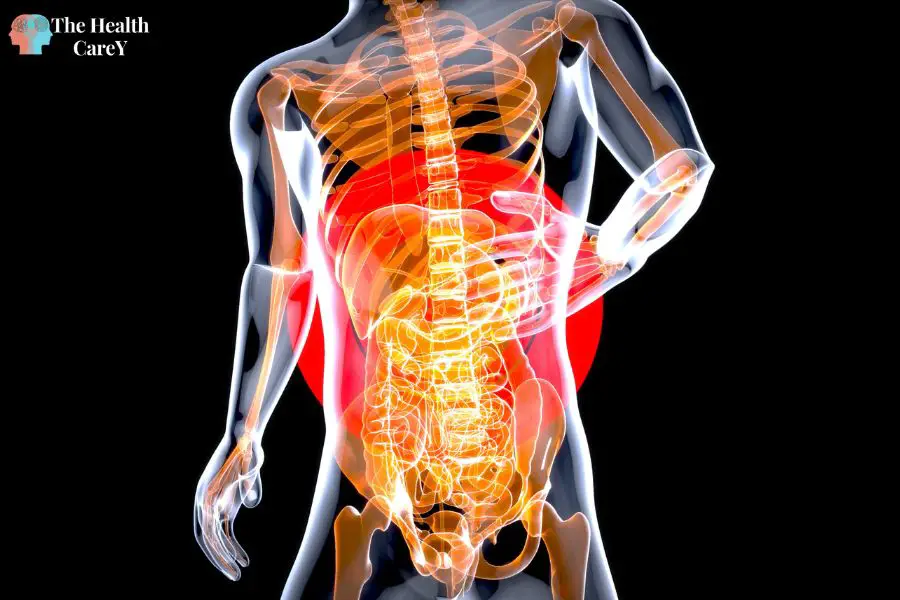Is Belching a Sign of a Heart Attack? Lets know further. Belching is a common bodily function that often occurs after a meal or when consuming carbonated drinks. It is generally not a cause for concern, but it may be a sign of a more serious underlying condition in some cases. One such condition is a heart attack, which can present itself in various ways, including belching.
Belching can be a heart attack symptom, although it is not shared. Chest pain or discomfort is the most common symptom of a heart attack, but it can also cause pain or discomfort in the arms, neck, jaw, back, or stomach. Other possible symptoms are shortness of breath, nausea, lightheadedness, and sweating. If you experience any of these symptoms, it is essential to seek medical attention immediately, as a heart attack can be life-threatening.
What is Belching?
Belching is a natural process when air accumulates in the stomach and is expelled through the mouth. It is a common occurrence that most people experience after a meal or a drink. Burping can also result from swallowing air, chewing gum, smoking, or consuming carbonated beverages. Although typically benign, burping can indicate a more severe issue, such as a heart attack. If burping is accompanied by additional symptoms such as chest pain, breathlessness, or sweat, seeking immediate medical attention is crucial.
Belching can also be a symptom of gastroesophageal reflux disease (GERD), in which stomach acid flows back into the esophagus, causing heartburn and other symptoms. Sometimes, belching can signify a digestive disorder such as peptic ulcer disease or gastroparesis.
To prevent belching, avoiding eating too quickly, chewing gum, smoking, or drinking carbonated beverages is essential. Eating smaller meals and avoiding foods that cause gas, such as beans and cabbage, can also help reduce belching.
If you experience belching and other symptoms such as chest pain, shortness of breath, or sweating, seek medical attention immediately. Getting a proper diagnosis and treatment is essential to prevent serious health complications.
Heart Attack: An Overview
A heart attack, medically termed a myocardial infarction, arises when blood flow to the heart is obstructed, resulting in the damage or demise of heart muscles. This critical condition necessitates urgent medical intervention.
The most common cause of a heart attack is the buildup of plaque in the arteries, which restricts blood flow to the heart. Plaque comprises cholesterol, fat, and other substances that can accumulate over time. When the plaque ruptures, a blood clot forms around the area, further blocking blood flow to the heart.
Symptoms of a heart attack can vary from person to person, but the most common symptoms include chest pain or discomfort, shortness of breath, nausea, lightheadedness, and cold sweats. Chest pain or discomfort is usually felt in the center or left side of the chest and can be described as Pressure, squeezing, fullness, or pain.
It is important to note that not all heart attacks are sudden and intense. Some heart attacks start slowly with mild pain or discomfort and gradually worsen. This is why it is essential to seek medical attention immediately if you experience any symptoms of a heart attack, even mild.
Several risk factors can increase your chances of having a heart attack, including age, high blood pressure, high cholesterol, smoking, diabetes, obesity, and a family history of heart disease. Lifestyle changes, such as quitting smoking, exercising regularly, and eating a healthy diet, can help reduce your risk of a heart attack.
In summary, a heart attack is a severe medical emergency that requires immediate attention. Knowing the symptoms and risk factors can help you take steps to prevent a heart attack and seek medical attention if necessary.

Is Belching a Sign of a Heart Attack?
Belching is a common bodily function when gas is released from the stomach through the mouth. While it’s usually nothing to be concerned about, it can sometimes be a sign of a more severe condition, such as a heart attack.
Belching can be a heart attack symptom because it’s often caused by indigestion or acid reflux, which can be a sign of reduced blood flow to the heart. When the heart doesn’t receive enough blood, it can’t pump as effectively, leading to digestive issues like belching.
If you’re experiencing belching along with other symptoms like chest pain, shortness of breath, or nausea, seeking medical attention immediately is essential. These symptoms can indicate a heart attack and prompt treatment is crucial for a successful recovery.
It’s also important to note that belching alone is not a definitive sign of a heart attack. Other factors, such as age, gender, family history, and lifestyle habits, can all affect your risk for heart disease. If you’re concerned about your heart health, talk to your doctor about your risk factors and steps to reduce your risk.
Other Symptoms of Heart Attack
In addition to chest pain or discomfort, several other symptoms may indicate a heart attack. These symptoms can vary from person to person, and some may experience no symptoms. It’s essential to be aware of these symptoms and seek medical attention immediately if you experience any of them.
Here are some other symptoms of a heart attack:
- Shortness of breath: You may feel like you can’t catch your breath, even when resting.
- Nausea or vomiting: You may feel sick to your stomach or vomit.
- Sweating: You may break out in a cold sweat, even if you’re not doing anything physically exerting.
- Pain or discomfort in other areas of the body: You may feel pain or discomfort in one or both arms, your back, neck, jaw, or stomach.
- Fatigue: You may feel extremely tired or weak, even if you haven’t done anything strenuous.
- Dizziness or lightheadedness: You may feel like you will faint or pass out.
It’s important to note that not everyone experiences all of these symptoms during a heart attack. Some people may only experience one or two of them. Some people may experience these symptoms without any chest pain or discomfort.
Be sure to seek medical attention if you experience any of these symptoms. Call 911 or your local emergency number immediately. Time is essential when treating a heart attack; getting help quickly can significantly improve your chances of survival and recovery.
Differentiating Heartburn and Heart Attack
Belching can be a common occurrence after a meal, but it can also be a symptom of a more severe condition like a heart attack. It can be challenging to differentiate between heartburn and a heart attack because they share similar symptoms. However, some key differences can help you determine which one you are experiencing.
Symptoms of Heartburn
Heartburn is caused by acid reflux, which occurs when stomach acid flows back up into the esophagus. This can cause a burning sensation in the chest, often accompanied by belching, bloating, and a sour taste in the mouth. Other symptoms of heartburn include:
- Pain that worsens when lying down or bending over
- Pain that improves when standing up or taking antacids
- Pain that is localized to the chest
- Pain that is not accompanied by shortness of breath, sweating, or nausea
Symptoms of Heart Attack
A heart attack occurs when blood flow to the heart is blocked, which can cause damage to the heart muscle. The symptoms of a heart attack can vary from person to person, but some common symptoms include:
- Chest pain or discomfort that feels like Pressure, squeezing, or fullness
- Pain that radiates to the arms, back, neck, jaw, or stomach
- Shortness of breath
- Sweating
- Nausea or vomiting
- Dizziness or lightheadedness
If you are experiencing any of these symptoms, it is essential to seek medical attention immediately. A heart attack can be life-threatening if left untreated.
Key Differences
While heartburn and a heart attack share similar symptoms, some key differences can help you differentiate between the two. The table below outlines some of these differences:
| Symptom | Heartburn | Heart Attack |
|---|---|---|
| Location of pain | Chest | Chest, arms, back, neck, jaw, or stomach |
| Type of pain | Burning sensation | Pressure, squeezing, or fullness |
| Duration of pain | Comes and goes | Lasts more than a few minutes |
| Trigger | Eating or lying down | Physical activity or emotional stress |
| Relief | Antacids or standing up | Resting or taking medication |
In summary, belching can be a symptom of heartburn and a heart attack. Pay attention to other symptoms you are experiencing to determine which one you are experiencing. If you are experiencing heart attack symptoms, seek medical attention immediately.

When to Seek Medical Attention
Belching can sometimes be a sign of a heart attack. Suppose you experience belching along with other symptoms such as chest pain, shortness of breath, nausea, or pain in the arms, neck, jaw, or back. In that case, you should seek emergency medical attention immediately.
It’s important to note that not all heart attacks present with the same symptoms. Some people, especially women, may experience atypical symptoms such as fatigue, a general sense of unease, or vague discomfort. If you’re unsure whether your symptoms are related to a heart attack, it’s always better to err on the side of caution and seek medical attention.
Suppose you have a history of heart disease or are at an increased risk for heart attack due to high blood pressure, high cholesterol, or diabetes. In that case, it’s essential to be aware of a heart attack’s signs and symptoms and seek medical attention immediately if you experience any of them.
Remember, time is of the essence when it comes to treating a heart attack. The sooner you receive medical attention, the better your chances of survival and recovery. Don’t hesitate to call 911 or go to the emergency room if you suspect you may be having a heart attack.
Prevention and Management of Heart Attack
Preventing a heart attack is the best way to manage it. Here are some ways you can help prevent a heart attack:
- Quit smoking: Smoking is a significant risk factor for heart attack, so quitting smoking is one of the best things you can do for your heart health.
- Maintain a healthy weight: Being overweight or obese can increase your risk of heart attack. To maintain a healthy weight, eat a balanced diet and exercise regularly.
- Manage your blood pressure: High blood pressure can damage your arteries and increase your risk of heart attack. You can manage your blood pressure by eating a healthy diet, exercising regularly, and taking medication if prescribed.
- Control your cholesterol levels: High cholesterol can cause plaque buildup in your arteries, increasing your risk of heart attack. You can control your cholesterol levels by eating a healthy diet, exercising regularly, and taking medication if prescribed.
- Manage stress: Stress can increase your risk of heart attack, so finding ways to manage stress is essential. Some effective stress-management techniques include exercise, meditation, and deep breathing exercises.
If you have already had a heart attack, there are steps you can take to prevent another one:
- Take medication as prescribed: If your doctor has prescribed medication to manage your heart health, take it as directed.
- Attend follow-up appointments: Regular check-ups with your doctor can help you manage your heart health and prevent another heart attack.
- Make lifestyle changes: Healthy lifestyle changes, such as eating a healthy diet and exercising regularly, can help prevent another heart attack.
Following these steps can help prevent a heart attack and manage your heart health. If you experience any heart attack symptoms, such as chest pain or shortness of breath, seek medical attention immediately.
Conclusion
Belching is a common occurrence that most people experience after a meal or a drink. However, it is essential to recognize that belching can signify a heart attack. Understanding the difference between a benign belch and a belch that might indicate a heart attack is crucial.
See medical attention immediately if you experience belching and other symptoms such as chest pain, shortness of breath, dizziness, or nausea. It is better to err on caution and get checked out by a medical professional. Heart attacks can be life-threatening; early intervention is critical to preventing serious complications.
While belching alone is not a definitive sign of a heart attack, it can be a symptom that should not be ignored. Suppose you have a history of heart disease or other risk factors for heart attack, such as high blood pressure or high cholesterol. In that case, you should be especially vigilant about any unusual symptoms you experience.
In summary, belching can be a sign of a heart attack but is not always a cause for concern. If you experience belching along with other symptoms, seek medical attention immediately. Take care of your heart health by maintaining a healthy lifestyle, managing risk factors, and getting regular check-ups with your healthcare provider.
Frequently Asked Questions
What causes excessive burping and chest pain?
Various factors, including acid reflux, indigestion, and heartburn, can cause excessive burping and chest pain. However, these symptoms can also indicate a more severe condition, such as a heart attack. If you experience these symptoms, it is essential to seek medical attention immediately.
Pre-heart attack symptoms in female
Pre-heart attack symptoms in females may include chest pain, shortness of breath, nausea, vomiting, and fatigue. However, symptoms can vary from person to person and may not always be as apparent in females as in males. If you experience any unusual symptoms, it is vital to seek medical attention immediately.
Chest pain relieved by burping
Chest pain relieved by burping can indicate acid reflux or indigestion. However, if the chest pain is accompanied by other symptoms, such as shortness of breath or nausea, it may be a sign of a more severe condition, such as a heart attack. If you experience chest pain that is relieved by burping, monitoring your symptoms and seeking medical attention if they worsen is essential.
Burping and chest pain on the left side
Burping and chest pain on the left side can be a sign of a heart attack, especially if it is accompanied by shortness of breath, nausea, or fatigue. However, it can also indicate other conditions, such as acid reflux or indigestion. If you experience these symptoms, it is vital to seek medical attention immediately.
Congestive heart failure belching
Belching can be a symptom of congestive heart failure and other symptoms such as fatigue, shortness of breath, and swelling in the legs and ankles. If you experience these symptoms, it is essential to seek medical attention immediately.
What are the 4 signs of an impending heart attack?
The four signs of an impending heart attack include chest pain or discomfort, shortness of breath, nausea or vomiting, and pain or discomfort in the arms, back, neck, jaw, or stomach. If you experience any of these symptoms, it is crucial to seek medical attention immediately.
Also Read:
Key Differences of Piercing Bump vs Keloid





















